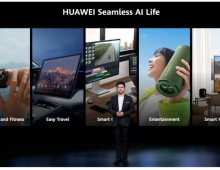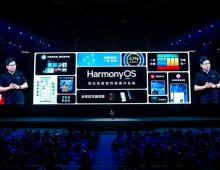
U.S. Wants to Cut Huawei Off From Chip Suppliers
The U.S. Commerce Department on Friday said it was amending an export rule to “strategically target Huawei’s acquisition of semiconductors that are the direct product of certain U.S. software and technology.”
The department added the “announcement cuts off Huawei’s efforts to undermine U.S. export controls.”
The rule change is a hit to Huawei, as well as to Taiwan’s TSMC, a producer of chips for Huawei’s HiSilicon unit as well as mobile phone rivals Apple and Qualcomm.
Huawei, which needs semiconductors for its widely used smartphones and telecoms equipment, is at the heart of a battle for global technological dominance between the United States and China.
The United States is trying to convince allies to exclude Huawei gear from next generation 5G networks on grounds its equipment could be used by China for spying. Huawei has repeatedly denied the claim.
Huawei has continued to use U.S. software and technology to design semiconductors, the Commerce Department said, despite being placed on a U.S. economic blacklist in May 2019.
Under the rule change, foreign companies that use U.S. chipmaking equipment will be required to obtain a U.S. license before supplying certain chips to Huawei, or an affiliate like HiSilicon.
In order for Huawei to continue to receive some chipsets or use some semiconductor designs tied to certain U.S. software and technology, it would need to receive licenses from the Commerce Department.
The Commerce Department said the rule will allow wafers already in production to be shipped to Huawei as long as the shipments are complete within 120 days from Friday. Chipsets would need to be in production by Friday or they are ineligible under the rule.
The 90-day extension provides an opportunity for users of Huawei devices and telecommunication providers—particularly those in rural U.S. communities—to continue to temporarily operate such devices and existing networks while hastening the transition to alternative suppliers.
In announcing this extension, the Department is also notifying the public that activities authorized in the TGL may be revised and possibly eliminated after August 13, 2020.
"Companies and persons relying on TGL authorizations should begin preparations to determine the specific, quantifiable impact of elimination if they have not done so already. Those companies and persons should be prepared to submit license applications to the Department to determine which, if any, activities will be authorized in the event that their TGL authorization is eliminated. The Department will provide prior notice via the Federal Register of a need to submit such applications," the Commerce Department said.
Meanwhile, China is ready to put U.S. companies in an “unreliable entity list,” as part of countermeasures against Washington’s move to block shipments of semiconductors to Huawei Technologies, the Global Times reported on Friday.
The measures include launching investigations and imposing restrictions on U.S. companies such as Apple, Cisco Systems, Qualcomm as well as suspending purchase of Boeing Co airplanes, the report said here citing a source.
The Global Times is published by the People’s Daily, the official newspaper of China’s ruling Communist Party.





















